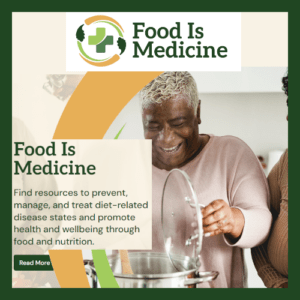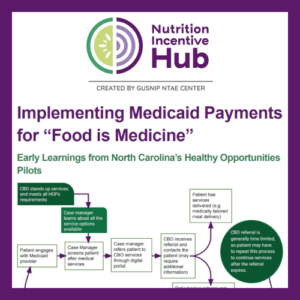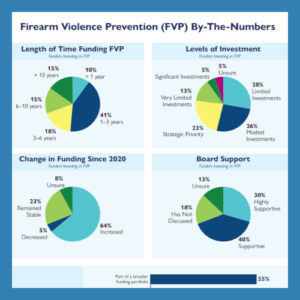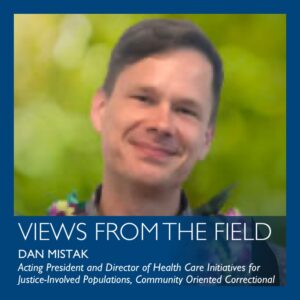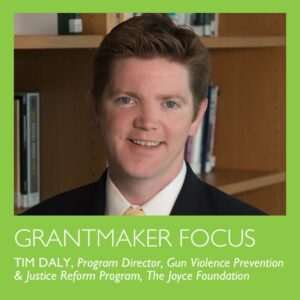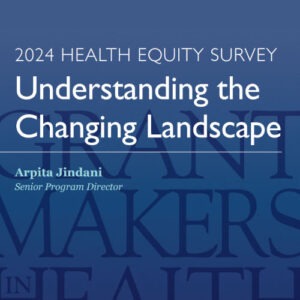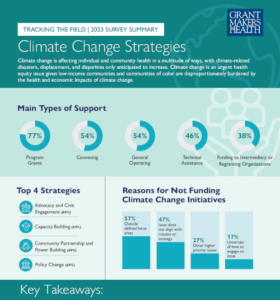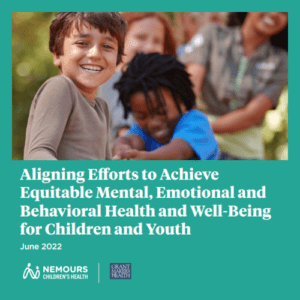Upcoming Events
Past Events
Featured Resources
New America Report Examines Subminimum Wage for Disabled Workers
Under the Fair Labor Standards Act, employers are allowed to pay disabled workers less than the federal minimum wage, which has significant impacts on these workers’ health and well-being. A report from New America examines, state by state, the policies that drive the use or elimination of the subminimum wage, as well as the programs each state provides to more comprehensively support individuals with disabilities as they seek meaningful employment and fair wages.
HHS Launches New Food is Medicine Virtual Toolkit
The Toolkit was developed in response to the National Strategy on Hunger, Nutrition, and Health and to support communities design and implement effective Food is Medicine interventions.
Case Study Examines Early Learnings in Using Medicaid Payments for Food is Medicine
A new resource commissioned by the Fair Food Network examines the early learnings from the Healthy Opportunities Pilots effort in North Carolina to use federal 1115 Medicaid Demonstration Waiver funding to scale and sustain community-based implementation of a combination of produce prescription programs, medically tailored meal programs, and nutrition education.
Explore Health Equity and Social Justice Topics
Recent Items - Climate and Environmental Health
The Health Sector is a Critical Voice in Climate Advocacy
Recent Items - Health Equity
Let’s Take Courageous Steps Together in 2025
Recent Items - Healthy Eating/Active Living
The National Peanut Board: April 2025
Recent Items - Housing
Marin Community Foundation: October 2024
Horizon Foundation: September 2024
Recent Items - Justice Reform
Recent Items - Social Determinants of Health
Marin Community Foundation: October 2024
Recent Items - Violence Prevention
The Joyce Foundation
Latest Resources
Achieving Latinx Health Equity in California: Real Impact through Innovative Philanthropy
There are many obstacles to achieving Latinx health equity, but there are also promising practices for change — with the ultimate goal of increasing philanthropic support for Latino-serving organizations advancing health equity.
Racial Equity Requires Funding to Build Power
By focusing on power building to reverse the longstanding inequities that prevent communities of color and low-income communities from thriving, philanthropy can help build safe, strong, and stable communities for all of us.
Productive Partnerships
Twenty years ago, a small group of grantmakers launched a Health and Environmental Funders Network (HEFN), seeking to bridge health and environmental philanthropy and to focus more attention on links between human, wildlife, and ecosystem health. One of my first tasks as HEFN’s first staffer was to try to engage health funders in this enterprise.
Creating a Neutral Space, Pursuing a Common Mission
Importantly, FCAA created a neutral space for funders; one where individual organizational agendas took a back seat to a unifying mission. This space became an incubator for philanthropic action.
Boosting Philanthropic Investment in Healthy Food in Tribal Communities
Tribal communities in America receive only about a half percent of all philanthropic giving, and the total dollar amount of grantmaking in these communities by large philanthropic foundations actually declined by 29 percent ($35 million) from 2006 to 2014 according to a report by First Nations Development Institute. Additionally, only a small portion of those grant dollars go to Native-controlled organizations.
Trends in Health Philanthropy: Oral Health Care Access and Equity
We should not have to make the case for oral health programming, but the reality is that the health effects of oral health disparities are not widely recognized—despite the fact that these disparities continue to be persistent and pervasive.
Reports and Publications
2024 Health Equity Survey: Understanding the Changing Landscape
In 2024, Grantmakers In Health (GIH) surveyed its Funding Partners to understand how their health equity work has evolved. The survey consisted of 40 questions including demographic information, program focus areas, partner engagement, organizational strategy, priority population, successes, and challenges. This report summarizes findings from the Health Equity Survey titled, “Understanding the Changing Landscape.”
2023 Survey Summary: Climate Change Strategies
This infographic summarizes the responses to a Grantmakers In Health funder survey, conducted in May and June 2023, on how philanthropy is addressing climate change, and the barriers and opportunities that exist to support climate-related efforts.
Aligning Efforts to Achieve Equitable Mental, Emotional, and Behavioral Health and Well-Being for Children and Youth
This report issues a call to action for philanthropic organizations and public-sector partners that are ready to move forward in improving mental, emotional, and behavioral health. It describes existing philanthropic and federal initiatives and offers a potential portfolio of aligned strategies for private- and public-sector partners to consider.
Strengthen your knowledge, skills, and capacity.
GIH focuses our programming around five areas that are critical to achieving better health for all.
We invite you to explore the resources available on our focus areas pages, browse content in more specific issue areas, and to connect with GIH staff to discuss how we can partner and support your work.


